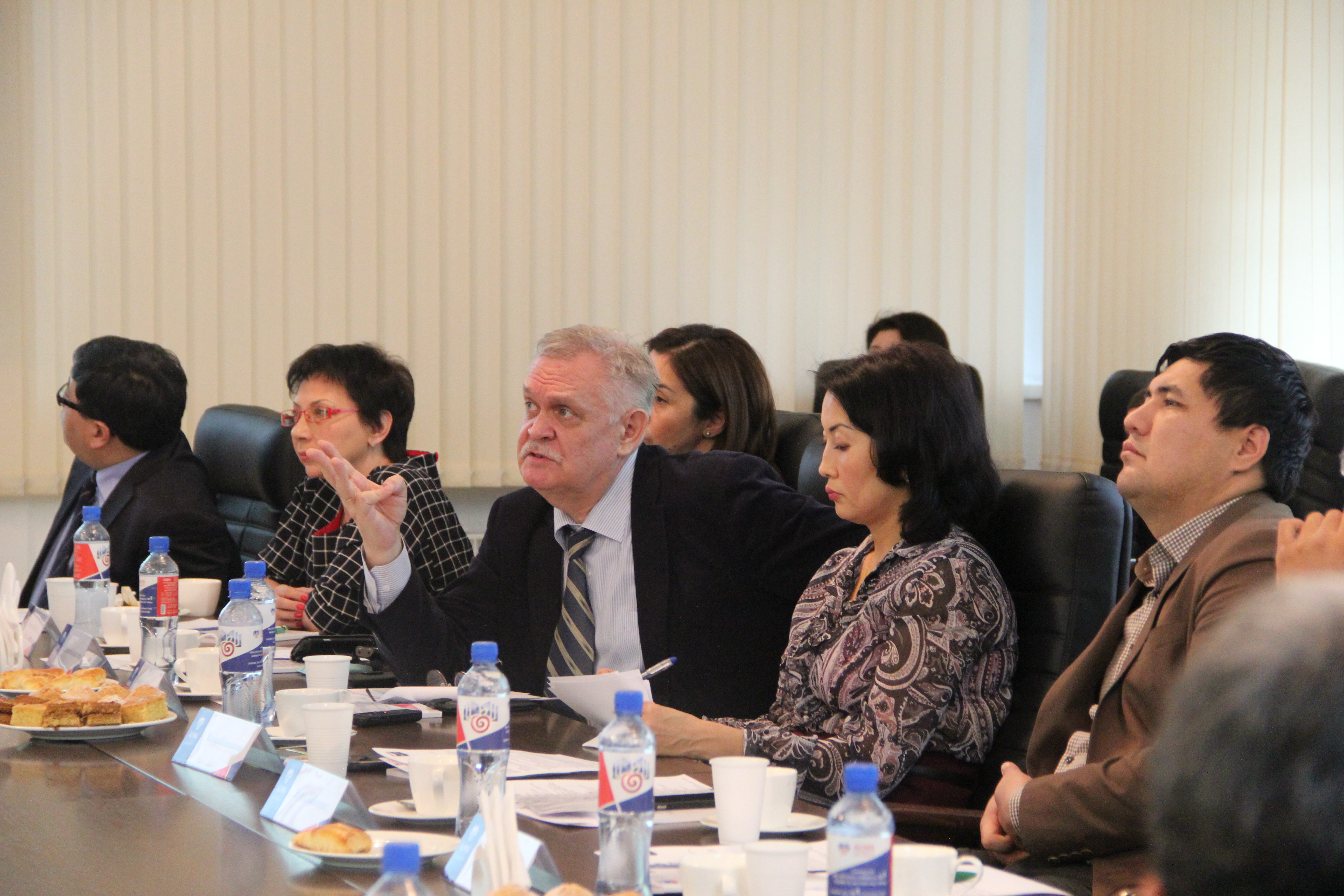The round table "Business and NGO: mechanisms of interaction" in Almaty

November 13, 2015.Almaty Management University (formerly IAB) hosted the round table on "Business and NGO: mechanisms of interaction", organized by the Center of expertise of NGOs and the Eurasia Foundation of Central Asia within the framework of the project " Initiative on Capacity Development of NGO experts in Kazakhstan" with the support of "Chevron" in Kazakhstan.
Representatives of business and government agencies, NGOs and the academic community gathered round the table to develop mechanisms for inter-sectorial cooperation and find joint solutions to social problems. The participants discussed whether it is profitable for business to have partnerships with non-profit organizations, what are the benefits of such a partnership for NGO, and what social problems it can solve. They also dismantled examples of successful long-term partnerships and identified factors that contribute to success.

"In the implementation of its social programmes Chevron has always relied on a partnership with non-governmental organizations, - says a company representative Leila Aytmukhanova - NGOs possess unique experience and expertise in solving important social problems and they are the link between business, government and the public. They know the needs of people, provide us with feedback and evaluate the effectiveness of our social investments. "
"For effective development of the state in any country cooperation triangle" state - business - civil society " is necessary. Currently in Kazakhstan, partnerships are formed only between government and business, or the government and NGOs. With regard to business and non-governmental sector, their relationship is poor. We hope that the roundtable will help all parties find common ground and develop mechanisms of possible cooperation ", - said Alma Sholpankulova, project manager of the EFCA.
"A couple of years ago, we conducted a study on CSR. It showed that NGOs do not have a complete picture of the business activities in the region, this information can only be obtained from the individual companies. In turn, a significant proportion of businesses believe that NGOs do not have sufficient capacity, at the same time the non-transparency of local authorities is a barrier to the development of corporate social responsibility - said Rinad Temirbekov, Director of EFCA. - According to the majority of companies, ideally, the government should be a leader and a link in the development of CSR by creating the appropriate conditions for this and taking into account the interests of the population. Experience shows that effective social projects are implemented where the real dialogue between the government, business and the community are adjusted. "
The "Initiative for capacity building of experts in the field of NGOs" aimed at improving the work of the NGO sector through strengthening institutional development to provide better services to the population. Improving the quality of training for trainers and NGO leaders to develop the capacity of NGO experts is one of the priorities of the project.

Eurasia Foundation of Central Asia (EFCA) - a public organization established in the region in 2005. EFCA mobilizes public and private resources to help citizens participate in building their future by strengthening their communities and improving their civic and economic wellbeing. Please visit: http://www.ef-ca.kz to get more information about the programmes of the EFCA and see a list of the members of the Board of Trustees.
The company "Chevron", founded in Kazakhstan in 1993, is the largest oil company in the private sector. Chevron owns 50% of "Tengizchevroil" and 18% in Karachaganak area. Please visit:http://www.chevron.com/countries/kazakhstan toget more information about the company.